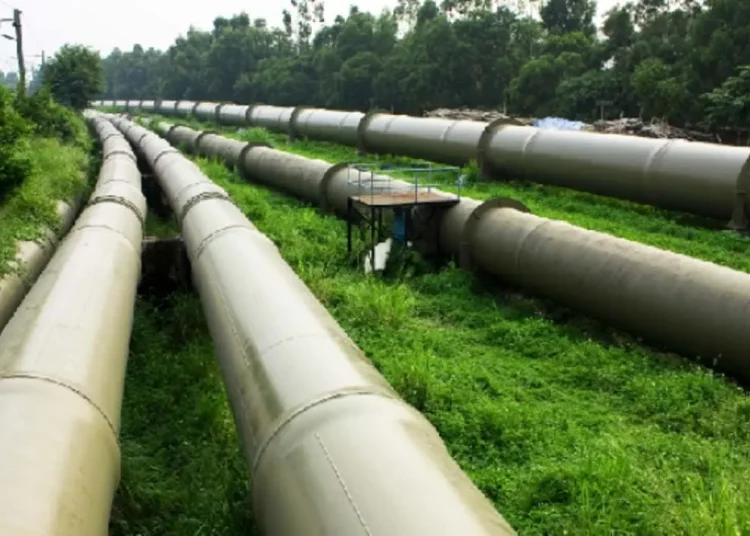Experts say no viable product conveyor belts Funding causes setback | Rehab to address tanker explosion incidents
Key stakeholders in the oil and gas industry have demanded a cautious approach to the planned pipelines and depot rehabilitation exercise by the Nigerian National Petroleum Company Limited (NNPCL).
NNPCL’s chief corporate communications officer (CCCO), Olufemi Soneye, said the company had commenced the rehabilitation of pipelines and depots to strengthen the country’s energy infrastructure for the long term benefits.
According to Soneye, the company had achieved a cost-effective funding model for the project, but that funding had been a critical setback.
The ongoing rehabilitation project is expected to be completed within two to three years, and is intended to resolve longstanding challenges in petroleum distribution.
Upon completion, Nigeria will achieve a sustainable crude oil supply to refineries, seamless product distribution through pipelines, reduced reliance on trucks, improved energy security and reduced fuel importation, lower transportation costs and reduced road hazards caused by fuel tankers.
However, some security analysts and marketers have expressed doubt about the reliability of the pipelines without adequate deployment of technology to support their safety operations.
Royson Stephen Onyishi, a security consultant, said the government has to put all necessary machinery in place, including the right professionals and technology, as well as engagement with all stakeholders involved in securing the pipelines.
Onyishi said, “An effective monitoring system can also help track the activities of vandals and oil thieves. Most of these measures have been deployed before. They are still experiencing cases of vandals because a stage in monitoring is falling or there is compromise amongst the team, thereby sabotaging the government’s effort.”
The secretary general of the Petroleum Products Dealers Association of Nigeria (PEDAN) Ibrahim Shehu Yahaya, noted that using pipelines for product distribution was a global trend. However, transporting products safely using rail, as was done in the 1970s and the early 1980s, offers no stoppage time and no losses.
Yahaya said there was no indication at the moment suggesting pipeline transportation and distribution of petroleum products across the country, even though pipelines and depots are in place in all regions and most states.
“No one to my knowledge is talking about this prospect because it will go against the interests of the most powerful unions in the nation, National Union of Petroleum and Natural Gas Workers (NUPENG) and Petroleum Tanker Drivers (PTD). To my knowledge, there are no measures to protect the pipelines.
“The experience of Oando Plc has put to rest that prospect, and there are companies that are willing to partner with Nigeria railway corporation on the freight and haulage of goods and products but have met brick walls despite their persistent efforts.
“Such companies include Safr Terminals Development Company Ltd, which has long been trying without success.
“Others are there because all the jetties and depots in Lagos and Port Harcourt are connected with rail lines,” said Yahaya.
Onyishi, on his part, said, “These pipelines continue to experience incessant vandalism because of the failure of all key stakeholders in the deployment of the right technology, equipment and skills.
“Before now, a monitoring agency within the government was created to oversee the activities of vandals. How well were they able to sustain the fight against vandals? What are their response plans for detecting, delaying, or denying the vandals the opportunity to continue their activities?”
He called for the deployment of the proper monitoring system and technology, which can detect and delay any form of vandalism, as well as engagement with community heads to create countermeasures in monitoring as they can play a vital role in fighting vandalism.
He further advocated continuous training and retraining of all involved in fighting vandalism, adding that the deployment of modern technology is highly cost-effective as it is a faster measure to curb vandalism effectively.
“Modern technology deployed along the pipelines will give instant notifications on the systems, stating the exact location where the act is being attempted.
“Community engagement cannot be overemphasised as these vandals are mostly within the community or neighbouring community. The engagement will complement them in securing the pipelines as they can serve as spies and physical protection officers. However, a counter community physical deployment can be applied as some communities in the past have promoted vandalism, either directly or indirectly.”
Soneye, however, gave assurance about the financing model of the national oil company’s renovation project,
“We can assure Nigerians that NNPC’s pipeline and the depot rehabilitation project is imbued with a structured financial model, strategic partnerships and committed execution. The initiative is set to resolve longstanding challenges in petroleum supply and strengthen the country’s energy infrastructure for the long term.”
According to him, though there are limited financial resources, which continue to pose a challenge in executing both refinery and pipeline rehabilitation projects simultaneously, “we are exploring creative and innovative approaches to ensure a cost-effective funding model to proceed with the pipeline and depot rehabilitation.”
Soneye acknowledged that the company had already designed a robust rehabilitation plan for the pipelines and depots and would deploy a new financial model—the Finance, Build, Operate, and Transfer (FBOT) approach.
He asserted that the ongoing activities would not be limited to the construction of new crude oil and product pipelines and the replacement of obsolete ones.
Soneye said advanced technology would be provided to enhance the pipeline security, prevent vandalism, and support the rehabilitation and modernisation of storage terminals.





